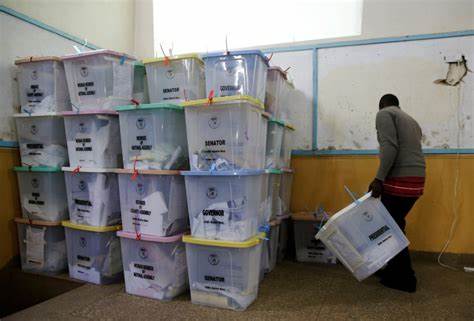Court rules EACC can probe graft suspects secretly
By Nancy.Gitonga, May 12, 2023The Ethics and Anti-Corruption Commission (EACC) has powers to secretly commence investigations of a suspect over any corruption allegations without notifying them, the High Court in Nairobi has ruled.
Justice Esther Maina of the High Court Anti-Corruption Division in Nairobi made the finding in a case lodged by a suspended legal officer at the Kenya Medical Suppliers Authority (Kemsa) Evans Cheruiyot who has challenged the use of evidence secretly acquired by EACC from his former classmate while demanding a bribe of Sh1 million over a tender for provision of legal services to the State agency.
In her decision, the Judge stated that no law in the country requires that EACC issues a notice to a party prior to commencing investigations in respect of a corruption, bribery or any other economic crime.
“Section 118 of the Criminal Procedure Code makes provision for the power of the court to issue search warrants, it does not create a mandatory obligation upon the EACC or any other law enforcement agency to issue a notice prior to investigations,” she ruled.
Secret recording
Cheruiyot had challenged the decision by his former schoolmate Titus Barasa Makhanu at Moi University School of Law of secretly recording their conversations on the tender and then taking the recordings to the EACC to investigate him for soliciting a bribe. “He set me up by recording our conversation and took them to EACC to investigate and prosecute me for allegedly soliciting a bribe. The commission cannot rely on the recording to investigate me since it was obtained without my consent.”
The Kemsa legal officer wanted the court to stop EACC from investigating, arresting or charging him on account of the recordings by his friend and former classmate on grounds that the evidence is inadmissible for violating his right to privacy.
But in her decision, the judge dismissed the application by Cheruiyot terming it premature as he has not been arrested or even charged with the offence of demanding a bribe.
More Articles

